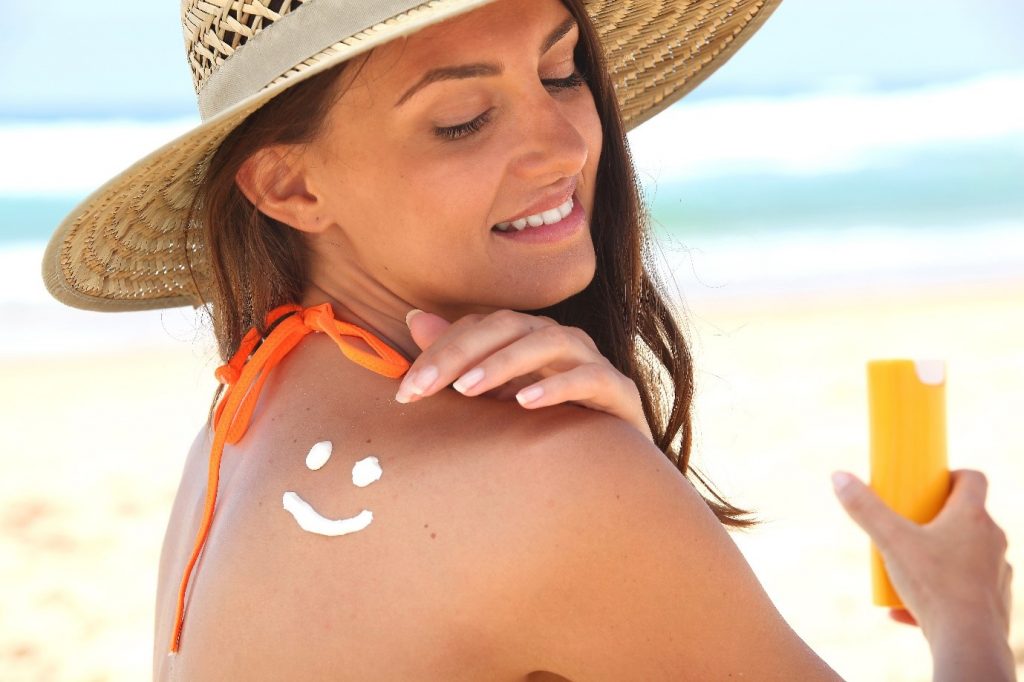


It’s important to know sun safety measures so you can keep yourself protected from the harsh Queensland sun this summer. Melanoma is one of the world’s most common forms of cancer. Australia has the highest rates of invasive melanoma, with Queensland being the skin cancer capital of the world. It’s estimated that 2 in 3 Australians will be diagnosed with a form of skin cancer before they turn 70.
We’ve put together all you need to know about sun safety and how to protect yourself from those harsh UV rays.
What is skin cancer?
Skin cancer occurs when your skin cells are overexposed to UV radiation, leading them to become damaged and unable to properly function. There are 3 main types of skin cancer:
- Basal cell carcinoma
- Squamous cell carcinoma
- Melanoma (the most common and dangerous)
These damaged cells can turn into painful and crusty sores on your skin, can be red lumps and can change shape over a short period of time.
What is UV radiation?
Ultraviolet (UV) radiation is a type of energy produced by the sun. While these invisible rays are important for our globe, they also cause skin cancer. UV rays aren’t just strong when the sun is bright – you can also be exposed to UV radiation on overcast days, when driving in a car or sitting in an office.
Every day, the Bureau of Meteorology reports the expected UV index which indicates how severe the sun’s UV radiation will be. It’s recommended that when the level is 3 or above, sun protection is needed.
How can I protect myself from the sun?
Sunscreen
It might sound like a no brainer to apply sunscreen when you know you’ll be in the sun, but it’s something that many people often forget to do. The sunscreen you use should have an SPF of 30 or higher and be applied at least 20 minutes before direct sun exposure. You should continue to reapply sunscreen every 2 hours, particularly if you’re sweating or swimming. However, sunscreen doesn’t make you invincible, so it’s important to keep in mind other ways to keep yourself protected.
Vitamin D in small doses
Many patients have been coming to us concerned about their levels of Vitamin D. While it’s important to keep your Vitamin D levels at a healthy amount to control the calcium levels in your blood stream, your bones strong and your muscles healthy, your body can only absorb a certain amount of Vitamin D at a time. This means that spending extra time in the sun won’t necessarily increase your Vitamin D levels, but may increase your risk of skin cancer, so it’s best to only spend time in the sun in small doses.
Seek shade
If you’re heading out for a picnic or a fun day at the beach, it can be easy to lose track of the amount of time you’ve spent in the sun. One of the easiest ways to limit your sun exposure is to seek shade. This doesn’t mean you have to spend the entire day indoors, rather choose a spot under a tree for your picnic and bring a large umbrella or tent with you to the beach.
Wear covered clothing
If you plan to spend lots of time in the sun, sunscreen alone won’t cut it. The easiest way to keep yourself protected from the sun when you’re on the go is to wear protective clothing. This includes long sleeve shirts and pants. Choose items that are lightweight, so your skin can stay covered without getting too hot underneath.
Wear a hat
Hats are more than a fashion accessory – they play a vital role in protecting your skin from the sun. While packing a hat might be the first thing you think of when it comes to sun safety, it’s important to choose the right kind of hat for ultimate protection. Hats with wide brims and a thicker material will be the safest for your skin when in the sun. Be sure to also choose one that is cool and comfortable so you’ll be willing to wear it all day long.
Always keep sunglasses on you
Being in the sun doesn’t just mean you expose yourself to skin cancer – cataracts and cancers can also form on the surface of your eyes from direct UV radiation. This means your sunglasses should serve as more than just a fashion accessory. We recommend choosing sunglasses that sit close to your eyes and have a wrap-around style which helps block the sun from getting near your eyes. Before purchasing new sunglasses, you should make sure they meet the Australian Standard for eye protection, which will be clear on every label.
For further tips on how to protect yourself from the sun this summer or to discuss any abnormal spots on your skin, we recommend getting in touch with your regular GP for some expert advice so you can stay cancer free.




